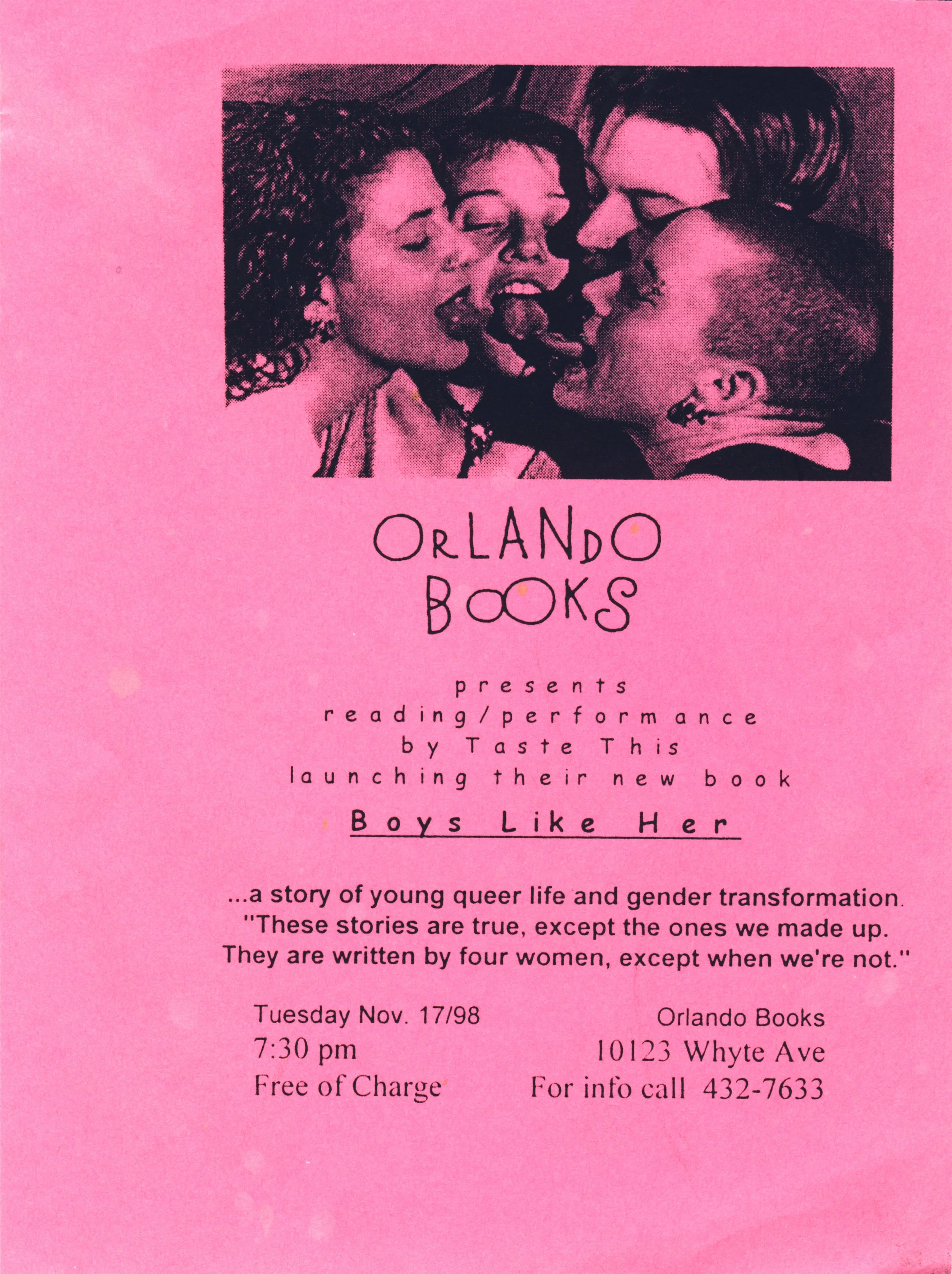
Orlando Books
First Location: 10355 Whyte Avenue
Second Location: 10123 82 Avenue
After over two decades working in and operating bookstores in her hometown of Edmonton and across the country, Jacqueline Dumas booked her ticket out of the business in 1985 to focus on writing novels. “But then I looked around and Common Woman Books and Weinlos Books had closed, and it seemed the city only had mainstream bookstores and the chains," Dumas said, "I thought there was a need for a good alternative bookstore.” To fill the void, Dumas opened Orlando Books on Whyte Avenue in the early 1990s. Named after the titular gender-bending protagonist of Virginia Woolf's novel, Orlando supplied the community of Old Strathcona with local authors, academic works, arguably the best poetry collection in the city, and one of the most extensive collections of gay and lesbian literature outside of Vancouver and Toronto. For nearly a decade, Orlando Books was a friendly, comfortable, and cozy place for 2SLGBTQ+ Edmontonians to shop, to meet, and to engage with the local community.
-
Orlando’s Origins
The closure of Common Woman Books in 1992 hit Edmonton's queer community hard. It was the first bookstore in the province to even use the word "Lesbian" to describe a section of their holdings, let alone to stock queer literature. Aspen Books, a store co-founded by Jacqueline Dumas in 1977, was another of only a few stores in the province that chose to add gay and lesbian literature to its stock in the mid 1980s. Many Edmontonians would not even step inside an alternative bookstore, and those who did still risked losing their employment or housing for any identification with the 2SLGBTQ+ community. Without legal protections under the Alberta Individual Rights Protection Act, coming out to heterosexual society was a difficult and even dangerous process.
Orlando Books opened in the summer of 1994, stocking a wide range of items Dumas curated herself. The store not only created safety for Edmonton's queer community by openly displaying gay and lesbian literature on its shelves and in its windows, it enabled Dumas' own coming out process too. She was not sure how to find the lesbian community in Edmonton, and hoped the bookstore would bring the community to her. Dumas reflected:
I wasn’t too interested in the bar scene and wanted to create an alternative space where everyone in the community would feel welcome: a bright, airy open space that carried books I hadn’t been able to find in other bookstores at the time: progressive political books; feminist books; poetry; a good selection of international literature; books from small, independent presses – and books by queer writers, of course.
The space Dumas created was cozy, welcoming, and reflective of herself. A faux fireplace, comfortably worn chairs, and a mural inspired by the early 20th century Bloomsbury Group provided the ideal backdrop for events such as the store's West Bank Salon, where attendees were encouraged to dress as their favourite literary figures as part of the city's Pride Day celebrations in 1997. One writer for queer periodical Times .10 described the "bright, open, and friendly" atmosphere of the store and the accessibility of its owner, as Dumas' office was right in the middle, not behind closed doors. "Do yourself a favour," the magazine encouraged, "and drop in if you haven't done so."
Orlando Books and the Fight for Gay Rights
While readers could find a wide range of queer theory, lesbian and gay fiction, philosophy, and a large selection of vegetarian cookbooks at Orlando Books, the things Jacqueline Dumas did not stock also spoke volumes. "You won't find The Bell Curve, or books by Rush Limbaugh, and you certainly won't find Alberta Report," Times .10 magazine reported to its queer readership. Edmonton mayor Bill Smith, who had frequently refused to recognize Gay Pride Day in the city throughout the 1990s, was another notable absence. "I doubt that there are too many books in my store that he would want to read," Dumas said.
Orlando Books reflected Dumas' personal taste in its décor, atmosphere, and selection, and it also represented her wish to create a queer space that was welcoming to outsiders, rather than the other way around. Frequently, Dumas would have to confront homophobic comments from people entering the store and seeing the selection of queer titles. "I walk right up to them and say: that's me you're laughing at," Dumas told the Edmonton Journal, "Especially with the political climate in Alberta, it's important to have [the gay and lesbian] section, it's important not to retreat from it."
The political climate in Alberta Dumas referred to was the storm brewing between the Alberta government and Edmonton's 2SLGBTQ+ community. Delwin Vriend's tentative victory after his wrongful dismissal for his sexual orientation in 1991 was overturned by the Alberta Court of Appeal in 1996. The following year, a lesbian foster mother known as Ms. T. lost her battle to foster more children when the Alberta government banned placements with "non-normative" families. Orlando Books raised funds for both of these causes among many others, and frequently appeared in Pride marches down Whyte Avenue. Dumas' open and outspoken defense of herself and Edmonton's queer community was an act of bravery for all of those who could not take the risk.
Freedom to Read, Freedom to Be
While the Alberta government's hostile attitude continued percolating through the 1990s, so did the coffee pot at Orlando Books. The calm and friendly atmosphere of the store was not enough to prevent the homophobia and vandalism in the streets of the city. During Freedom to Read Week in 1996, Dumas found the glass from her store windows shattered over her display of queer literature. According to organizers, this homophobic vandalism was the only overt act of violence in the country to target a bookstore during Freedom to Read Week. While it was not the last time Dumas would have to replace the store windows, she would be heartened by the support from the community. Although the store had barely been open two years, loyal customers quickly collected enough donations to replace the windows.
Other encounters with homophobia in her community would inspire Dumas to take action. When two students from the nearby Strathcona High School approached Dumas to ask if she would be interested in running an ad in the student paper alongside other Whyte Avenue businesses, she delivered. Along with the $25 fee, Dumas prepared an advertisement for Orlando Books with the line "Books for lesbian and gay youth and their friends," hoping to let students know where in town to find positive representations of the queer community. Within a few days, the editor of the school paper called to inform Dumas of a problem with the ad. "Was it the size? No, she said. The problem was the line about gay youth." When pressed to delete the line, of course, Dumas replied "Absolutely not."
Next, the faculty advisor to the paper called, informing Dumas that this newspaper would be seen by all students and their parents. He again asked for the two "offensive" words to be removed, explaining that the ad excluded heterosexual students. Dumas again disagreed:
I said well, it doesn't exclude the kind of students I want in my store, I want gay and lesbian students -- and their friends. I don't think my books would appeal to anybody, you know, who wasn't friendly to these students…
Dumas also pointed out that the school library carried the Alberta Report, which she felt was exclusionary towards the queer community. When the advisor claimed it was school policy not to exclude students, he was unable to provide Dumas any specific part of the policy that applied. She rejected his offer to run the ad for free as long as the line was deleted.
Finally, Dumas received a call from the school principal. Again, the principal was unable to define the "school policy" he cited, and admitted that it was his own "personal decision" not to run the ad for its "exclusionary" nature. Dumas reflected on the meaning of "exclusionary":
What if I had advertised “Books for children,” thereby excluding adults, or “Religious books for all faiths,” thereby excluding nonreligious people, or “Princess Di books,” thereby excluding most of the people that I know? More and more, the word ‘equality’ is being used when ‘sameness’ is what is meant. Sameness usually means white, heterosexual, middle class, and often male. Doesn’t the public school system have a mandate to accept diversity and to make the hallways safe for all its students?
Dumas considered the meaning of "equality" when the principal affirmed the school had no gay or lesbian students. She considered it again when she went to retrieve her advertisement from the school, where she came face-to-face with a homophobic slur etched onto the door at eye-level.
Disturbed that no student would dare come out in such circumstances, Dumas joined a group with a goal of making schools safer for 2SLGBTQ+ youth. Together, the advisory group created "Safe and Caring Schools for Lesbian and Gay Youth—A Teacher’s Guide" for the Alberta Teachers’ Association, which was distributed to schools across the province. Orlando Books would also lend its name to a University of Alberta undergraduate scholarship for students demonstrating leadership and community involvement, particularly those that advanced the 2SLGBTQ+ community. For Dumas, this support for students was part of Orlando's legacy, one that would long outlast the store.
Contributions, Challenges, Closure
Orlando Books was more than a bookstore for Edmonton's 2SLGBTQ+ community. Like Common Woman Books before, Orlando was the place to pick up tickets to the next Womonspace dance, to see queer musicians like Jennifer Berezan perform, and to coordinate resources for political causes. When Orlando relocated east of the train tracks to escape rising rents in the summer of 1998, Dumas opened a community space called The Room for Change above the bookshop. Here, the store hosted author's visits, song circles, spiritual gatherings, theatre workshops, and more. Community groups such as The Edmonton Rainbow Business Association were able to rent the space for their meetings. Although the move and an address misprint in the phonebook caused people to mistakenly believe the store had shut down, Orlando Books was still working hard to create space for community activism and change in Old Strathcona and beyond.
"We've moved!" an advertisement for Orlando Books reminded readers in local queer periodicals, encouraging customers to look in store and online for an "excellent selection of lesbian, gay, bi, [and] trans titles." Orlando Books remained deeply involved in the queer community, providing meeting space and a wealth of literary resources. The Gay and Lesbian Community Centre of Edmonton (GLCCE) was able to create one of the largest queer resource libraries in Canada, partly an inheritance from Gay Alliance Towards Equality (GATE) and Womonspace, and partly with newer acquisitions through Orlando. "We have a lot of Support from Orlando Books--they publish a wish list for us," Kristy Harcourt of GLCCE explained, "People also donate books they can't use and we sell them to get resources."
The culture of mutual support between Orlando Books and Edmonton's 2SLGBTQ+ community helped weather the storm of changes into the new millennium. Customers’ book buying habits were changing, partially due to changes in the publishing industry, the rise of online shopping, and the opening of the Chapters on Whyte Avenue in 1998. While some independents on Whyte Avenue such as Greenwoods' were unphased by the megastore, Dumas was more concerned. “I’m not happy about having them here,” she said of the big-box bookseller two blocks away, “Once you get these superstores coming in, it changes the whole complexion of the avenue and it becomes a giant shopping mall.”
Censorship was another problem that impacted Orlando far more than other independent bookstores, particularly where queer literature was concerned. "In those days certain titles - primarily leather books from the US - were routinely stopped at the border," Dumas recalled:
When that happened our entire shipment of books would be stopped, which meant that dozens of titles (including customers' special orders) could be held up for months because of one title, and by the time the books finally did arrive they were usually damaged.
Other Canadian bookstores that imported queer literature, such as Toronto's Glad Day and Little Sisters in Vancouver, had been fighting Canada Customs since the 1980s. In 2000, the Supreme Court ruled that Canada Customs only had the authority to confiscate material the courts ruled in violation of the Criminal Code, it could not make its own decisions about what qualified as "obscene".
Between Canada Customs seizures and the "triple whammy" of moving, the phone-number misprint and the rise of Chapters, Orlando also suffered from increasing marginalization in the wider community. The Edmonton Journal, which used to alternate publishing bestseller lists for different bookstores around the city, no longer seemed to take Orlando's lists seriously. This frustrated Dumas, who worked hard to support local and marginalized writers as well as small independent presses. At times, the store's reputation for queer literature would overshadow the wide variety of feminist and postcolonial writings, Indigenous history and politics, and the substantial poetry and children's collections. "At first… it was seen more as a space where all these different things intersected," Dumas recalled:
...but as I became identified as lesbian, then the bookstore became all of a sudden a lesbian bookstore, like it didn't matter that I had all these other titles or that we supported all these other causes.
Orlando's identification as a queer bookstore prompted the Edmonton Journal only to interview Dumas about queer issues and even caused community groups to stop renting the space. For every member of the queer community that openly and proudly supported the bookstore, there was another who could not enter Orlando for fear of being identified by colleagues, friends, or family. After the closure of Orlando Books in 2002, one Womonspace writer described her anxiety about entering the store:
I remember walking down Whyte Ave, refusing to make eye contact with anyone. I was convinced that if someone looked into my eyes they would see my gayness and run away screaming—I have an active imagination, what can I say? But, I forced myself to greet people and smile, just like I have always done. I tried many times to go to Orlando Books, but I always stood paralyzed and hyperventilating outside the door.
The Supreme Court ultimately ruled in Delwin Vriend's favour in 1998, enshrining protections for Canadians regardless of their sexual orientation. Although Canadians no longer needed to fear loss of housing or unemployment due to their sexuality, the risks of being outed were often still too great. For many would-be customers of Orlando Books, the impact was too late. Within four years of the Vriend decision, the Whyte Avenue bookstore would close before some Edmontonians could summon their own courage to enter the store.
The Orlando Corner
"Indulge your passion for books! Call or visit the Orlando Corner at Audreys Books for the best in Lesbian Literature, Erotica, Sexuality, Humour, books on Coming Out, Relationships and more," an advertisement in Womonspace News proclaimed, "…plus, register as a former Orlando Books customer and become a member of Audreys Book Club at no charge." Although Orlando Books had closed its doors for the last time, Jacqueline Dumas' curated selections of queer literature were still available in Edmonton. As an employee of Audreys Books on Jasper Avenue, Dumas launched the Orlando Corner in February 2003 as a special collection for the city's 2SLGBTQ+ community to discover. Naturally, the Orlando Corner at Audreys aspired to be as intersectional as ever, with titles on globalization, anti-capitalism, cultural studies, feminisms, and literary theory as well as queer literature.
While curating titles for the Orlando Corner, Jacqueline Dumas remained an active and appreciated figure in Edmonton's 2SLGBTQ+ community. She received a number of Pride Awards for her services to the community, which included two Pride Certificates for Orlando Books in 1995 and 2002. For Dumas, the people and the larger community that she helped bring together at Orlando was one of her favourite parts of the business:
…The most rewarding part was developing a space that was lesbian at its core, and was inclusive of other elements of society. It wasn’t us being included in straight space, for example, or in progressive political space, but us including them in our space.
Although Orlando Books was founded as a key resource to help access Edmonton's lesbian community, Jacqueline Dumas ended up creating a much larger challenge to the status quo and redefined what being an active community member meant. She built a space that reflected her own values and sense of self in spite of ongoing marginalization, fear, and violence. Orlando Books made a lasting impact on how queer literature reached the people who needed it the most, both on and off the shelves.
PDF includes footnotes and citations
Archival Images
Orlando Books owner Jacqueline Dumas. Edmonton Journal: April 12, 1997.
Orlando Books at Edmonton Pride. Photo supplied by Jacqueline Dumas.
Photo credit: Toryn Suddaby
Photo credit: Toryn Suddaby
Orlando Books owner Jacqueline Dumas [left], 1994. Photo supplied by Jacqueline Dumas.
Orlando Books advertisement. Gateway: February 12, 1998.
Orlando Books advertisement. November 7, 1998.
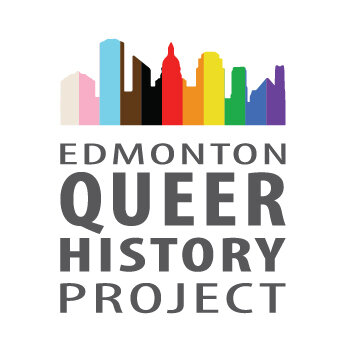


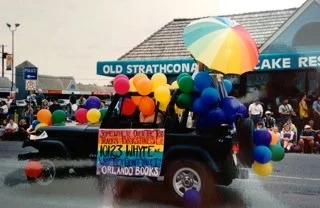
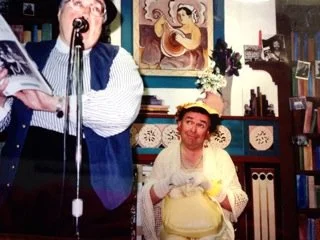
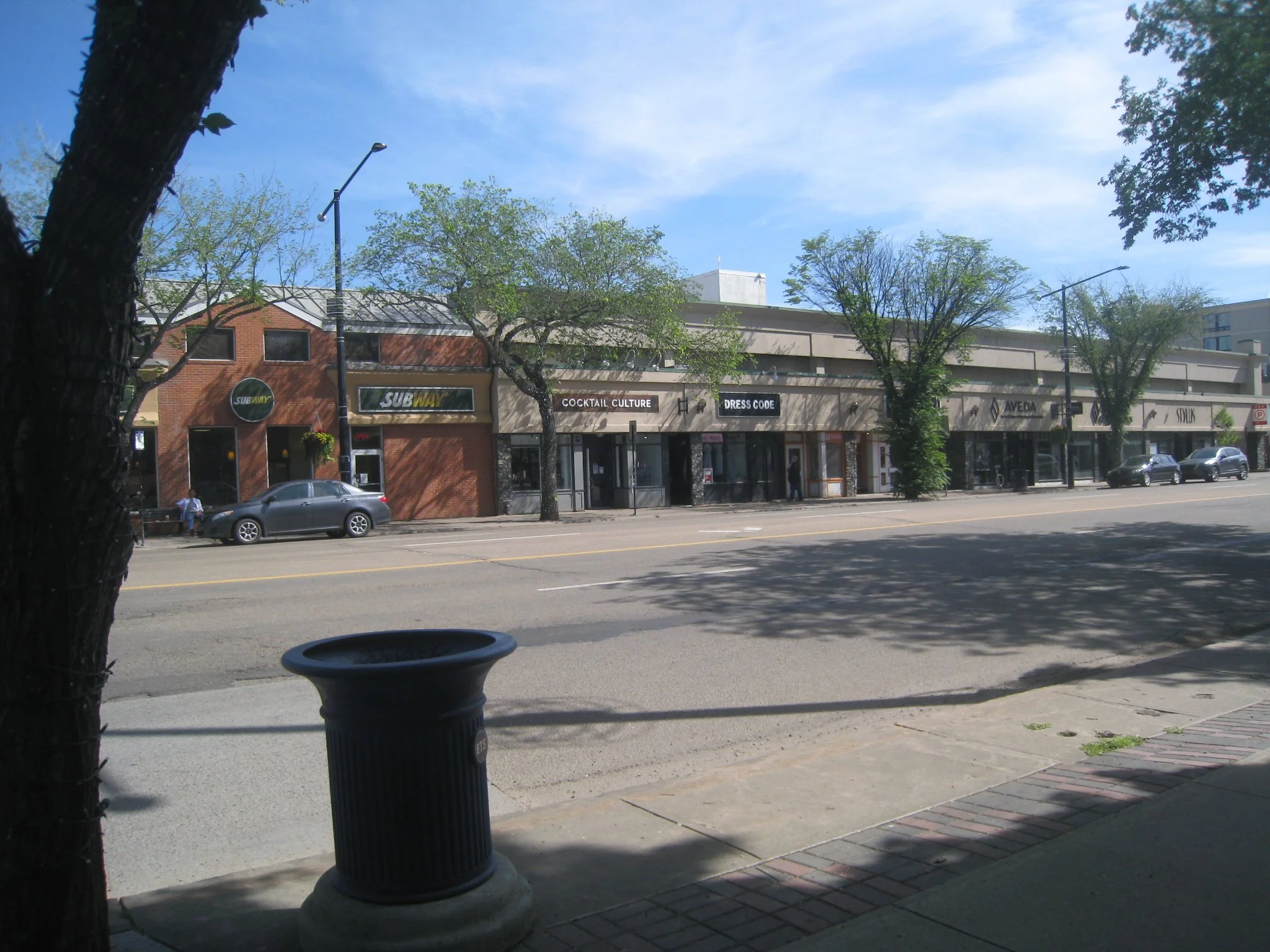
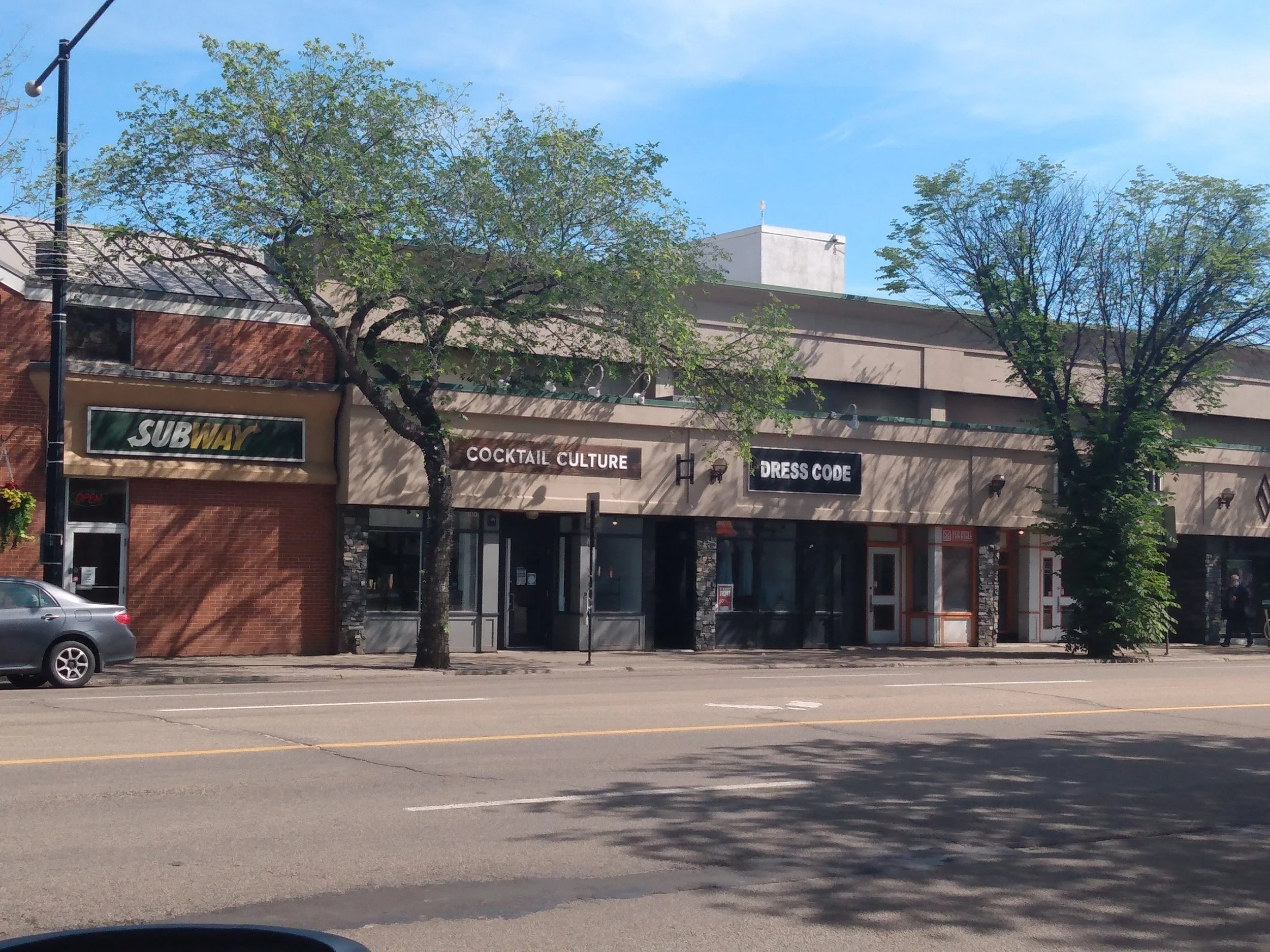
![Orlando Books owner Jacqueline Dumas [left], 1994. Photo supplied by Jacqueline Dumas.](https://images.squarespace-cdn.com/content/v1/5f61141fa6215237a5ee5a36/fbbaea68-ec69-4247-810c-106c1eddb0b9/Orlando+Books+-+Coming+Soon.jpg)


